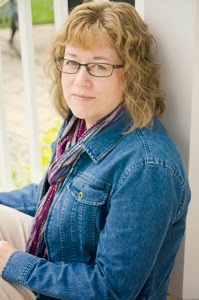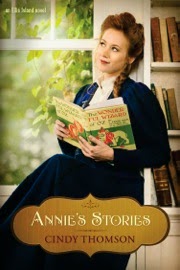We here at Novel Rocket's
LAUNCH PAD Contest: Boosting You Out of the Slush Pile are pleased to announce the winner of this year's Historical Fiction category.
We did some rearranging in 2013 and substituted a Nonfiction category for Historical Fiction. In 2012, none of the entrants were quite ready for prime time, and so we didn't name a winner.
We brought back Historical Fiction this year, however, and one entry stood out from the rest.
One judge said of this story, "The writing is good, and so is the development of the main character. The chapters show what the family is like through the young girl's eyes. The author is definitely a creative writer."
The other judge offered no argument, saying, "This is a literary historical fiction that makes the reader weep for the character from the first sentence. Dangling hope within the characters' reach, this work touches on the deeper themes in history and travels through the difficulties of life without moaning in self-pity. I enjoyed reading every word."
I think they liked it.
Just what is this story that's created such enthusiasm? The first Historical Fiction winner our contest has named in three years is:
Firebrand, by Sarah Thompson of Justin, Texas.
Chapter One
Is mise Saoirse.
I am Freedom.
Brookfield, Texas
June 20, 1857
First day in our new home we buried my brother Aidan in that hard, hot, Texas ground beside my uncle's fresh grave.
I was twelve years old.
Only my cousin Jack and myself were present for the service. Sweat dripped down our backs as the sun beat down on us with a fury I had never felt before in Ireland. Jack wasn't so much affected, having been born in that hell, but I wilted long before he finished the burial.
Aidan's grave was covered, full. I felt naked and empty.
Jack carried me inside the house, gave me water, and went back to work outside. All without saying a word. I spent the afternoon on the parlor sofa, crying into one of Mam's needlepoint pillows while the house mocked me with silence.
Later that day, my brother Declan tried to take his own life.
Jack found him retching near the dried-up creek bed next to an empty bottle of laudanum. As he dragged Declan inside, he met my eyes, and I knew I'd just lost another brother. But Jack told me to fetch the physician, and I did. I managed to saddle up the old mare and drove the poor dear three full miles into town, even in my skirts and all.
By the time we got back to the farm, Declan was hardly breathing. That fool doctor claimed he could do little else but pronounce my brother dead, and I cursed him for that. I climbed up onto the bed beside my brother and pressed my warm palms against his clammy cheeks. His cloudy eyes stared unfocused past me as I leaned over him.
"You aren't going anywhere," I whispered. My tears splashed against his blue lips. "I'll not be losing both of my brothers Declan, I won't! So you pull yourself together, now. I need you."
He didn't even blink in response.
Jack tried to pry me away. As if I hadn't already seen what death looked like. But I would not
be moved, and so Jack sat at the foot of the bed,
his head bowed in prayer.
I never heard much of anything about the good Lord before I met Jack, save the stories Aidan told me at Christmas about the baby Jesus. I'd never given Himself any more thought than I did to stories of Oisín and the land of Tír na nÓg. But when Jack said later that 'twas the Lord that saved Declan's life, I believed him.
Declan was laid up in bed for almost a fortnight afterwards. Mam never came to see him. She was still bound up in her grief, locked away in her room. Da came in once. He said nothing. Wouldn't even look me in the eye. He hadn't since the day before Aidan was murdered.
It fell to Jack and myself to nurse Declan back to health. I stayed at my post throughout his recovery, fetching him water and soup, and reading to him. Even when he told me to leave.
“Get up and make me,” I said, voice catching in my throat. “I promised Aidan I would take care of you. And I—I mean to do it.”
Declan only glared at me and fell back asleep.
Watching him gave me some comfort. A momentary serenity settled on his countenance which reminded me so much more of Aidan. They were twins. Same auburn hair, same olive eyes, but there had always been a peace and cheerfulness in Aidan's expression which was ever vacant in Declan's.
Mam used to remark on it, on occasion. Far too much seriousness in a boy of fifteen, she said of Declan the morning we arrived in New Orleans. At fifteen, you should still be more than a little silly. Declan had ignored her while Aidan proceeded to play a game of jacks with me.
As I sat beside Declan in his sickbed, a whimper escaped my lips. A fearful, childish whine. Aidan's name. I needed him to reappear, come through the bedroom door and tell me that it was all a cruel joke. I'd pretend to be cross with him, but ‘twouldn't last long. I never could stay cross at Aidan. He would then hold me, and sing to me, and tell me everything would be all right. Then he would tell me about all of the beauty and adventure we would find in our new home. He would keep Mam from crying, and Da from drinking, and all of us from fighting. He would keep us living.
Mam once told me that Aidan's name meant little fire. And that was what he had been for me. A bright, lively wisp of a boy who made my heart glow whenever he was near. But he was dead. My fire was gone. And my heart was cold.
All I had left was Declan, and he hated me.
"You killed him, you know."
I sucked in a shuddering breath and glanced down.
Declan scowled at me with red-rimmed eyes. He coughed weakly. "It's your fault he's dead."
Those words, hardly more than a pitiful croak from his raw throat, made my stomach twist. I wanted to look away, to shove my fingers in my ears, but I couldn't. Because he was right.
"If you'd only done as you were told." He clenched the quilt in his hand as he struggled for breath. Tears streamed from his eyes. "If you had stayed put, and not run off in a tantrum—"
"And where were you?"
Declan blinked at me. "What?"
"You saw me run away that night, and you didn't stop me." My face burned. "Aidan was the only one to come looking for me, and you let him go out alone!"
Declan paled. "I was asleep!"
"Liar! You're a liar and a coward. The least you could do is admit it."
Declan turned his face away. His breathing worsened. Mam had a meaning for his name, too. It was an older name, older than the river Shannon, she declared. But as she understood it, it meant full of goodness.
She must have been mistaken. Or else missed the mark something terrible when she named him. Full of something, to be sure, but 'twasn't goodness. Was there an Irish name for full of—
"Why are you still here?" Declan spoke through his teeth. "Go and be useful, for a change."
I tumbled off the bed and stared at him, clenching my fists with rising guilt and fury. Wanting to run from the room in a huff, but determined to stay at his side. He was ill, that was all. He needed me, even if he didn't want me. Even if I didn't want him. He was hurting. But then, so was I.
"Declan, I'm—"
"Out!"
Declan grabbed one of my books from the nightstand and flung it across the room. The effort left him wheezing.
But my pity was just as spent. "I hate you, Declan Callahan! You're a sniveling coward. And you can be getting your own soup, now."
I whirled and ran from the room before I burst into tears. I stopped at my mother's door, but it was locked tight. She cried softly behind it. No one else existed in her world of grief.
I glanced at the stairs to the attic, where Aidan and my Uncle Brendan's trunks were stored. But I was forbidden to go up there, and the dusty old room scared me, anyhow.
Downstairs was no better. Da was in his study, but I caught a glimpse of him through a crack in the door. He was slumped over his desk, pouring another glass of whiskey.
A heavy weight pressed on me from all sides. I couldn't catch my breath, couldn't see through my tears. My head pounded like my skull would split at any moment. All as badly as the night Aidan died.
One bullet was all it had taken. One bullet, and any chance for my already tattered family to become whole again was destroyed. One bullet had killed them all. I was utterly alone. And it was all my fault.
I know very well what my own name means. 'Tis the Irish word for freedom. Saoirse. Da always said Mam was half-mad when she named me. Most days I agreed with him, because I felt anything but free.
The sound of a hammer echoing across the yard broke into my thoughts, and I welcomed the noise as if it were a symphony. I bolted towards the back door.
[To continue, click here.]

































